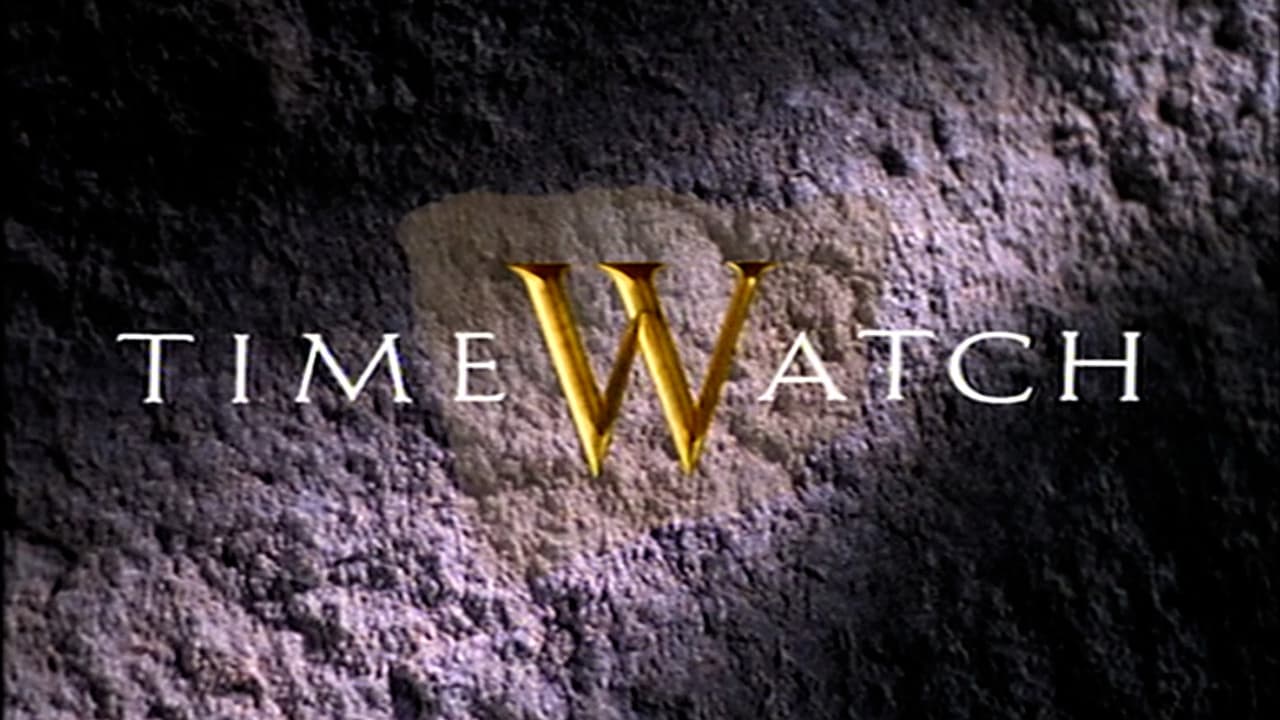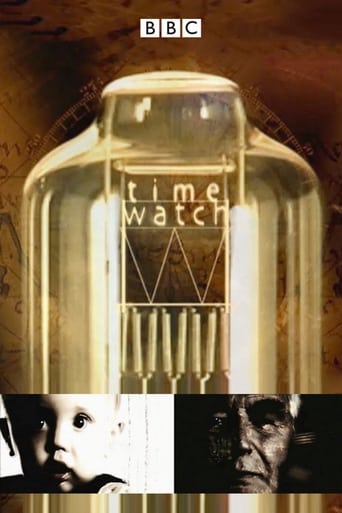Timewatch Season 2

Timewatch is a long-running British television series showing documentaries on historical subjects, spanning all human history. It was first broadcast on 29 September 1982 and is produced by the BBC, the Timewatch brandname is used as a banner title in the UK, but many of the individual documentaries can be found on US cable channels without the branding.
Watch NowWith 30 Day Free Trial!
Timewatch
1982 / TV-PG
Timewatch is a long-running British television series showing documentaries on historical subjects, spanning all human history. It was first broadcast on 29 September 1982 and is produced by the BBC, the Timewatch brandname is used as a banner title in the UK, but many of the individual documentaries can be found on US cable channels without the branding.
Watch Trailer
Timewatch Season 2 Full Episode Guide
BEFORE THE NATIONAL HEALTH: A remarkable newly discovered archive of silent film reveals hospital life in the 1920s and 30s. How did people afford medical care in the days before the National Health? ROYALIST OXFORD: In 1642 King Charles I set up his capital in Oxford as the English Civil War began. Simon Winchester returns to Oxford to see what clues remain there to the character of the Cavaliers. MERRIE ENGLAND: An affectionate look at the days when history at school was about great men of sturdy British stock who made our island's story. Do you remember L. du Garde Peach, one of Britain's bestselling historians?
THE BATTLE FOR MARTIN LUTHER: Martin Luther, the German priest who split the Catholic church and began the Reformation, was born 500 years ago. Today, East and West Germany both struggle to claim him. From East Germany, Bernard Clark reports on how the Marxist government has tried to transform Luther into a revolutionary hero. LEBANON - CRUSADER BATTLEFIELD: The Christian and Muslim militia, who have been fighting around Beirut, trace their enmity back to the first Crusades. How does the history of the Crusades still affect the Middle East power struggle today?
A special programme devoted to the life and historical reputation of Prince Albert, husband to Queen Victoria. From Osborne House on the Isle of Wight, designed by Albert for his family, the many different sides of his remarkable character are brought into focus. Albert the foreigner - his upbringing in Coburg, the tiny German principality where he was born. Albert the reformer - his belief in improving public services. Albert the instigator of the Great Exhibition - the biggest triumph of his life. Albert the politician - his huge and controversial influence on British politics. Historians Asa Briggs-Robert, Rhodes James, and David Cannadine reassess one of the most important figures of Victorian Britain. (Re-aired 9 December 1983 as a standalone program titled 'Albert The Early Years')
SHADOW OF THE GALLOWS: After Parliament's vote on hanging, an investigation into the history of Tyburn and the mass public executions in the 18th century. Did hanging deter? SPYING FOR RUSSIA: Christopher Andrew investigates why the British Secret Service failed to detect Blunt, Burgess and Maclean and he uncovers their Soviet 'control'. He talks for the first time to an Oxford mole who was recruited by Moscow in the 30s. THE FORGOTTEN WARRIOR KING: William Rufus, son of William the Conqueror, is a king of whom little is known but legend. David Drew reports on new research that throws fresh light on a formidable ruler of England.
BATTLE OF THE RIVER PLATE: During the Falklands war, the Argentinians made great capital of the last time they'd fought the British - and won, in 1806. SIMON Winchester reports. BODYLINE BOWLING: Was the England captain, Douglas Jardine, aware of the political implications when he said that he would regain the Ashes but lose a dominion? Timewatch talks to cricket veteran Gubby Allen. DEATH ON THE DOLE: In a time of high unemployment John Bauman looks back at how the health of the unemployed was damaged in the 1930s. LOUIS XIV: The story of the 'Sun King' of France, who was the first 'politician' deliberately to mould his own favourable image by setting up the 17th-century equivalent of Saatchi and Saatchi.
FRANCE AND THE NAZIS: Following the arrest of Klaus Barbie, butcher of Lyon, memories of Nazi collaboration have again returned to haunt a generation of Frenchmen. Dr Christopher Andrew goes to Drancy, the Paris housing estate turned in 1940 into a transit camp for Auschwitz and uncovers the ghost of Marshall Petain's Vichy Government. He talks to stout supporters of the 84-year-old Marshall, such as tennis champion Jean Borotra. FAKING HISTORY: The Hitler diaries are just the latest in a long line of historical forgeries. The Drake Plate found near San Francisco in 1936 and which claimed California for Queen Elizabeth I was shown to be fake in 1977. The Vinland Map was bought in 1959 for ~£100,000 as the first map to show the North American Continent. Instead it was shown to be a forgery in 1967. Are there other fake historical documents masquerading as genuine? Can any fake survive today's scientific analysis? Timewatch talks to the experts.
THE LOVED AND HATED KING: Richard III - hunchback murderer of the princes in the Tower, or victim of Tudor propaganda? On the 500th anniversary of his coronation, historians go into battle again over his reputation. THE SILENT YEARS OF TELEVISION: In 1950 politics were not allowed on British television. By the end of the decade television dominated the political scene. As an election approaches John Bowman asks how television has changed British political history. ANIMALS AND MEN: Throughout history man has used animals for food, companions and labour. John Tusa talks to Keith Thomas about his new history of Man and the Natural World -the background to today's concern for animal liberation and ecology.
THE PEACE MOVEMENT IN THE 1930s AND TODAY: Fifty years ago, British politics was dominated by campaigns for peace. What are the parallels with the 1980s? THE LAST MUGGLETONIAN: In 1652, the Muggletonians were a radical sect in Revolutionary England. Simon Winchester traces their secret survival until the death of the last Muggletonian in 1979. THE VICTORIAN POLICE: What sort of force was the Police intended to be? With a new Police Bill before Parliament, Bernard Clark returns to their original beat.
In a new edition of THE DIARY OF SAMUEL PEPYS, editor Robert Latham has uncovered previously unknown details of Pepys's life. THE WEEDERS: Are civil servants destroying vital historical evidence when they decide Government records should not be kept? THE HISTORICAL CLEOPATRA: As the BBC drama series ["The Cleopatras"] approaches its climax, Timewatch asks, "Was Cleopatra's reputation as a lustful tyrant really deserved?"
HOW DO YOU DEMOCRATISE A NAZI? On the 50th anniversary of Hitler's elevation to the chancellorship of the Third Reich Simon Winchester reports from Washington and Nuremberg on how America in 1945 tried to remake a nation in its own image through a process of forced re-education. THE VENERABLE BEDE - BRITAIN'S FIRST HISTORIAN: Who was he? Where and how did he live? Why is he so important? The story of a remarkable man who, over a thousand years ago, could have travelled from Northumbria to Rome. THE LEVELLERS: three months ago in Putney church Michael Foot and other members of the Labour Party associated themselves with the men of the 'New Model Army' who spoke there 300 years before. Who were these men who, in their radicalism, saw Cromwell as the modern equivalent of establishment and right wing? How does the philosophy of these Levellers find echoes in the Labour Party today?
Free Trial Channels
Seasons


























